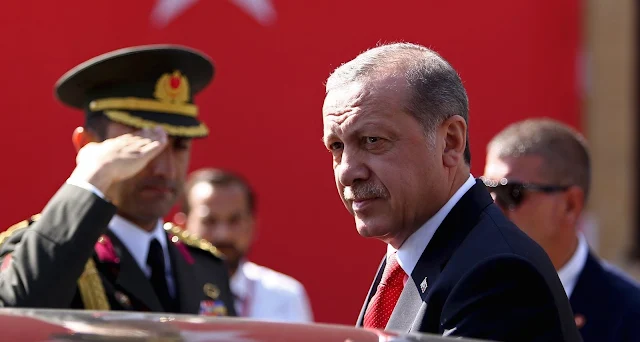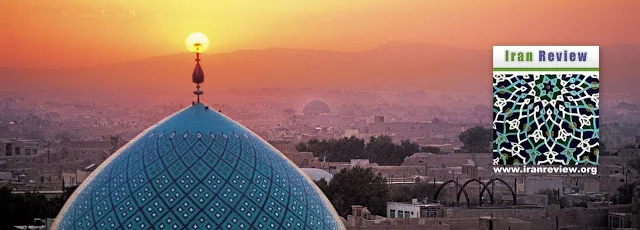When leaders of a country and its foreign policy officials distance from strategic insight and are overcome by illusionary ideas, the result of their decisions takes everybody by surprise.
By Masoud Rezaei,
PhD in International Relations & Visiting Research Fellow at
the Institute for Middle East Strategic Studies (CMESS), Tehran
Image Attribute: The Duran / Creative Commons
Turkey has been implementing ambitious plans in order to turn into a regional power since 2009. One decade of successful economic performance and the country’s increasing soft power in the Middle East and the West gave enough self-confidence and motivation to Turkish officials to seriously interfere the Middle East’s issues. However, most analysts believe that this decision has been characterized with political naivety and a host of strategic mistakes as a result of which Turkey is currently facing a serious crisis. The most important crisis facing this country at the present time is terrorist attacks on its soil, which were only made worse through the failed coup d’état on July 15 that pushed the ruling Justice and Development Party to the brink of collapse and diverted the country’s attention from regional issues to its own domestic developments. The main question now is why a country with such a huge economic and political capacity should suddenly find itself on course to increasing violence and insecurity and face major problems with its neighbors over regional developments? There is no doubt that a large part of this crisis should be blamed on the viewpoint of Turkish leaders and mistaken strategic policies that this country has adopted with regard to the Middle East.
In fact, foreign policy and regional behavior of any nation is indicative of identity of that country and people, which evolves throughout history and in relation to geographical realities of that country. This means that Turkey is basically considered a new actor in the Middle East and throughout the past century up to the election of the Justice and Development Party (known as AK Party by its Turkish name) the country had a largely Western identity and did not interfere much in the Middle East’s developments. In the meantime, Turkey’s interference in and influence on the Middle East’s issues started in 2010 and following parliamentary elections in Iraq and appointment of that country’s prime minister. Ankara’s priority in those elections was to support the al-Iraqiya coalition, which was led by Ayad Allawi, while Iran supported the State of Law Coalition led by Nouri al-Maliki.
After reelection of Maliki and failure of Ayad Allawi’s bloc, relations between Baghdad and Ankara became tense and following withdrawal of American forces from Iraq at the end of 2011 and spread of Arab uprisings to Syria, Turkey decided to make up for that failure by taking it out on Iran in Syria. This issue should be considered as a starting point for the beginning of tension in Turkey’s relations with its three neighbors, that is, Iraq, Syria and Iran. This came despite the fact that Turkey’s President Recep Tayyip Erdogan had close personal and family relations with his Syrian counterpart, Bashar Assad, and Turkey’s economic influence in Syria and Iraq was much bigger than Iran. Therefore, in a matter of only a year, Turkey faced critical conditions with regard to its three neighbors in the Middle East. At the end of 2011, Turkey was hopeful that it could help downfall of Assad’s government, and in doing so, started to arm Syria’s opposition groups. As a result of this strategic mistake and through offering all-out support to the Daesh terrorist group in 2014, officials in Ankara have been witnessing the outcome of their mistakes by experiencing frequent bomb attacks in their country, which has led to Pakistanization of Turkey. Therefore, instead of realizing its imaginary “Muslim Brotherhood belt” idea through rapid downfall of Assad’s government in Syria and undermining the Shia government in Iraq, Ankara is currently having two weakened and fragmented countries in its immediate neighborhood.
In addition, this strategic shift by Turkish officials has had unexpected consequences for this country. For example, Erdogan’s political moves in the region have practically dragged Russia into Syria war and have caused deepening of relations between its regional rivals, that is, Russia and Iran. At the same time, Turkey has ignored this issue that in addition to Iran, Syria is of geostrategic importance to Russia as well. Therefore, active presence of Russia in Syria’s security environment and bombardment of the positions of Daesh and other groups supported by Ankara, has made Turkey angry and confused and, more importantly, changed the balance of power and forces in favor of Assad’s government and his allies.
Turkeys’ recklessness in the Middle East and lack of certainty in the country’s regional and global strategies have elicited covert and overt criticism of the West as well. Once, Turkey’s former prime minister, Ahmet Davutoglu, who was considered as the main theorist of neo-Ottomanism and behind Ankara’s ambitions in the Middle East, believed that the way to accession to the European Union basically goes through the Middle East. Today, however, this idea seems very simplistic. For example, former British prime minister, David Cameron, believes that Turkey’s accession to the European Union would not be possible before the year 3,000. Although this prediction does not seem very logical, but at least, it conveys the important message to Turkey that mistaken assessment in the field of foreign policy will lead to strategic isolation of the country. Therefore, disagreement to Turkey’s membership in the European Union has caused Ankara and its new prime minister to feel isolated on multiple fronts, and as a result of their disillusionment, have decided to revive their relations with Israel while offering practical proposals to Egypt to do away with the existing differences with Egyptian President Abdel Fattah el-Sisi’ government.
More importantly, the mutual threats exchanged by Turkey and Russia had hit the headlines in international media just a few months ago with analysts speculating about the possibility of a third world war. Erdogan, however, chose Russia as the destination of his first foreign trip following the failed coup – which was also a form of showing political disdain for the West – and reached reconciliation with his Russian counterpart, Vladimir Putin, following about eight months of tension, which started after Turkey shot down a Russian fighter jet over Syria last November. The economic losses inflicted on Turkey as a result of Russia’s sanctions following downing of the Russian jet in addition to the fact that this incident reduced Turkey’s reach in Syria, finally forced Erdogan to seek reconciliation from a weaker ground. The failed coup also increased the importance of Russia and Iran in the eyes of close aides of Erdogan and, on the contrary, augmented their suspicion of such countries as the United States, Saudi Arabia and European states.
Therefore, we see that Ankara is currently having shaky relations with countries around it, that is, Russia, Iran, Iraq and Syria, and is faced with consequences of long-term and important instability which emanates from Syria. These developments have caused the Muslim Brotherhood, Cyprus, and Israel to turn into Ankara’s main partners and allies in the region while Turkey has been indicating its willingness to engage in tripartite cooperation with Iran and Russia to resolve the crisis in Syria. From this point on, it would be certainly for Turkey to choose the next move.
Therefore, Turkish officials should note that foreign policy is a totally serious issue because any mistake in this field will have real consequences. This means that when leaders of a country and its foreign policy officials distance from strategic insight and are overcome by illusionary ideas, the result of their decisions takes everybody by surprise. In fact, what is described as illusionary ideas is analysis of issues and prescription of solutions on the basis of unreal hypotheses, unknown random relations among variables, incorrect analogies, decisions made on the basis of worthless evidence, and simplistic optimism. As history shows, those politicians who have behaved like this in foreign policy have undoubtedly put their country on course to crisis while risking insecurity and war in their entire region. Therefore, more important of all elements and factors affecting Turkeys’ recent insecurity and failures is the issue of continued strategy shift and mistaken policy making by this country in the region. There is no doubt that Turkey is currently in a weaker position compared to the time when this country had not interfered in the Middle East’s developments. Therefore, now it has to change its foreign policy directions in such a way that would cause resentment of both staunch Islamist supporters of Erdogan and nationalist Turks. These continued and sudden U-turns in foreign policy of a country would mean nothing but return to zero point.
Reprinted by Permission from Iran Review.
All rights reserved by the Original Publisher.
(c) 2016 IranReview.org






















